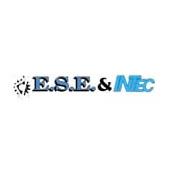Selenium Supplement for Ruminants
Organic selenium in ruminant diet: can we expect extra benefits beyond animal health? New evidences of improved milk and meat quality
Published: January 10, 2011
By: M. Baulez, L. Dussert (Lallemand Animal Nutrition)
Key points
- Due to sub-optimal selenium levels in most soils, nutritionists and scientists advocate selenium supplementation in ruminant diet.
- Organic selenium (selenium yeast) is more bioavailable than its mineral counterpart (selenite, selenate) for dietary supplementation, hence more effective to improve selenium status.
- Selenium yeast supplementation of ruminant diet has been shown to improve animal antioxidant status, reproduction, selenium transfer to the calf, and health (decreased somatic cells in milk and mastitis risks...)
- Recent findings show that beef cattle diet supplementation with selenium yeast can also improve meat anti-oxydant status, resulting in higher yield for the processor (reduced drip loss), and improved organoleptic quality.
- Selenium yeast supplementation of dairy cow diet can increase milk selenium content and antioxidant status, resulting in potential human health benefits (functional food).
Selenium supplementation is widespread in dairy, beef and small ruminant diets. Scientific research shows that it does improve the animals anti-oxidant status, immunity (in dairy cows this results in reduced mastitis risks), and fertility. Dairy cows selenium supplementation is also shown to improve immune transfer to the calf.
Of the various solutions available for selenium supplementation, selenium yeast appears as the most optimal source of selenium for all animal species, due to its superior bioavailability. It is the most effective source of selenium to increase selenium status in the animal blood, muscle and milk.
As well as an overview of organic selenium health benefits in ruminants, we are reporting recent data on the effects of selenium yeast supplementation on animal products, highlighting the fact that beyond animal health and performance, organic selenium supplementation has repercussions onto milk and meat anti-oxydant status and quality, bringing additional benefits for the farmer and beyond, to the food processor and consumers.
How to increase ruminant selenium supply?
Scientists reckon that, in most parts of the world, dietary selenium intake of both animal and human is sub-optimal for effective anti-oxydant protection. Because selenium enters the food chain through plants, which convert mineral selenium from the soil into organic selenium, low selenium content in the soils of most parts of the world (Oldfield, 2002) lead to insufficient amount of the essential mineral in forages and cereals. Hence, most nutritionists recommend selenium supplementation in ruminant diet. Two different forms of selenium supplement are available:
- Mineral form, such as sodium selenite or selenate
- Organic form, from selenium rich yeast, which contains organically-bound selenium (selenomethionine, selenocysteine). Contrarily to mineral selenium, this is the form found in plants and it is readily available for the organism (about selenium yeast, see boxed text at the end of the document).
Numerous trials have shown that, when providing equivalent amounts of selenium under either mineral or organic form, the later allows to attain higher selenium levels in animal blood, tissues and milk, proving the superior bioavailability of the organic selenium form (Figure 1-a and b).
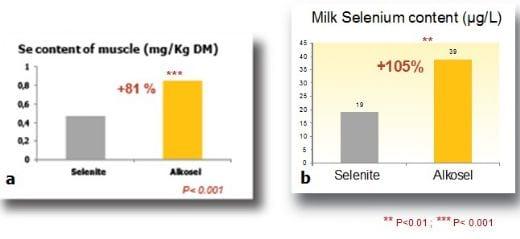
Fig. 1: The effect of the selenium supplement form (mineral vs. organic form from selenium yeast) on animal selenium status a: beef tissue - 0.3 mg/kg DM Se supplementation for 210 days (Padova University, 2010), b: cow's milk - 0.3 mg/kg DM Se supplementation for 90 days (Weiss and Hogan, 2005)
How much selenium do ruminants need?
There is a difference between the animal requirements, which are measured in experimental setups, and animal allowances, which are the amounts needed to meet the requirements of the animals in "real life" conditions, including a safety margin to take into account variations in feed intake, feed composition and production level.
In 2001, the Canadian National Research Council (NRC) has increased the recommended level of Selenium supplementation for dairy cows to 0.3 mg/kg DM.
For example, based on these guidelines, the following inclusion rates are recommended when using Alkosel® R397 as a selenium source (Alkosel® R397 contains > 2000 ppm organic selenium - essentially as selenenomethionine-):
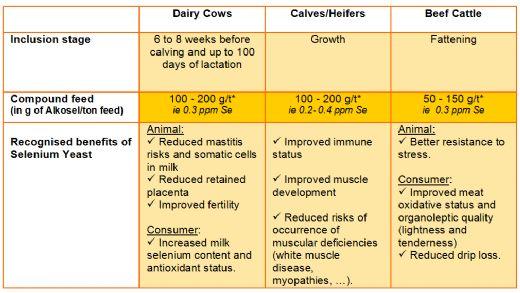
*Dosage must respect the national regulation.
Vitamin E and Selenium supplementation are usually combined since they both exert complementary anti-oxidant activities: Vitamin E has a protective role at the cell wall level, while Selenium, via the gluthatione peroxydase system, acts at the intracellular level.
Which health benefits for dairy cows and calves?
Selenium plays a crucial and ubiquitous role in the organism. The health benefits of selenium supplementation in ruminants are well recognized:
- Enhanced immune functions and immune defenses.
In dairy cows, this is directly reflected by the potential of selenium and Vitamin E supplementation to reduce somatic cell count (SCC) in milk and prevent sub-clinical mastitis. Mastitis is usually described as the costliest disease for the dairy industry (Weiss et al. 1990).
Dairy cow supplementation with selenium yeast can help reducing SCC in milk more efficiently than mineral selenite, as shown in a study by Malbé et al. (Figure 2).
Smith et al. have linked the protective effect of selenium to the influence of the antioxidant status on neutrophil functions, the circulating immune cells implicated in the early response against pathogens. When antioxidant capacity is limited, the lifespan of those immune cells is reduced and the infection can become established or severity of the infection can increase.
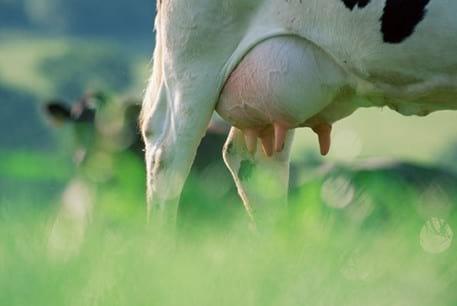

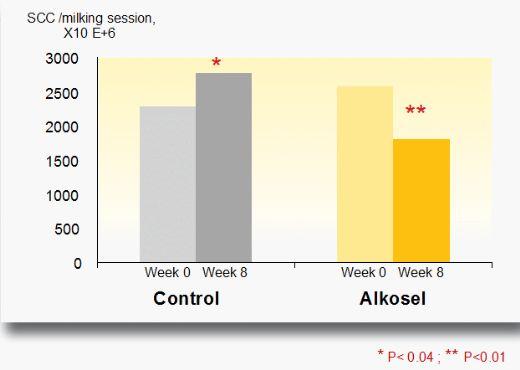
Fig 2: Selenium yeast, which is more effective than inorganic selenium for raising blood selenium level, has the ability to reduce SCC in milk (Malbé, 1995).
- Enhanced reproductive functions
- Selenium reduces the incidence of post-partum retained placenta. Retained placenta affects 9-20 % of all calving in the US, costing millions to the dairy industry. While a multi-factorial condition, the link between retained placenta and selenium/vitamin E deficiency was established as early as 1969. To date, over 20 peer-reviewed papers evaluate the benefits of selenium, vitamin E or both on retained placenta, with 2/3 reporting a positive response in retained placenta prevention with selenium/vitamin E supplementation.
- Selenium improvesfertility. The body of scientific publications on the topic allows to conclude that selenium and Vitamin E deficiencies negatively impact on dairy cows reproductive health and performance.
- Improved calves selenium status.
In 2005, a trial was performed by Dr Bill Weiss, at the Ohio State University, USA, to assess the effect of selenium yeast (Alkosel®R397) supplementation on dairy cows milk selenium content and calves' selenium status (0.3 ppm Se as sodium selenate vs. 0.3 ppm Se as Alkosel).
When compared to inorganic selenium, selenium yeast Alkosel®R397 significantly increased the cows' serum, milk and colostrum selenium content, with a positive effect on selenium transfer to calves, both at birth and during lactation, with subsequent advantages for calf health.
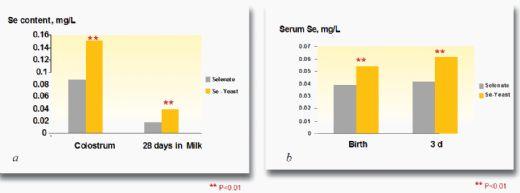
Fig. 3: Selenium yeast significantly increases colostrum and milk selenium levels post-calving (a). The organic selenium source offers better selenium transfer to the calves, first through the placenta and then the colostrum (b) (Weiss, 2005).
Beyond the animal, can we expect benefits on meat and milk quality?
Beyond the animal, can we expect benefits on meat and milk quality?
If Selenium supplementation is important for optimal health and fertility, especially in high producing animals which are subject to important oxidative stress, its benefits can be further observed at the processor and consumer level. Indeed, several trials have shown that selenium yeast supplementation leads to increase the selenium, thus the anti-oxydant status of animal products: milk and meat.
Considering that scientists believe that human dietary selenium supply is sub-optimal in most parts of the world (in 2001, Combs estimated the number of selenium-deficient people in the world to be in the range of 500-1000 million!), selenium supplementation of milk and meat producing cattle could help address an important public health issue by providing selenium enriched food products.
Improved beef meat quality
Improved beef meat quality
New findings, based on a recent trial conducted at Padova University (Italy), in 2010, show that selenium yeast is able to improve meat processing quality and organoleptic qualities, as compared to mineral selenium supplementation.
This trial was performed in a commercial fattening unit on Charolais beef during the finishing period (210 days), and meat quality was evaluated after 5 and 10 days of ageing.
First of all, this study showed that, when compared to the mineral source, Alkosel significantly improved the animal selenium status (higher blood and tissue selenium concentrations), confirming the superior bioavailability of the organic form of selenium (Fig 1 a).
But, most interestingly, the selenium yeast also improved several aspects of meat quality (Fig. 4):
But, most interestingly, the selenium yeast also improved several aspects of meat quality (Fig. 4):
- Selenium yeast reduced meat drip loss during maturation, offering better yield for the slaughterhouse (Fig. 4 a).
- Selenium yeast improved meat aspect (lightness), which is an important decision criteria for customers and is part of meat organoleptic qualities (Fig. 4c).
- Selenium yeast improved meat tenderness (inversely proportional to muscle sheer force), another key organoleptic quality, described as the first quality criteria sought after by consumers (Fig. 4 b).

Figure 4: Selenium yeast supplementation significantly improves beef meat quality as compared to mineral selenium (Padova University, 2010).
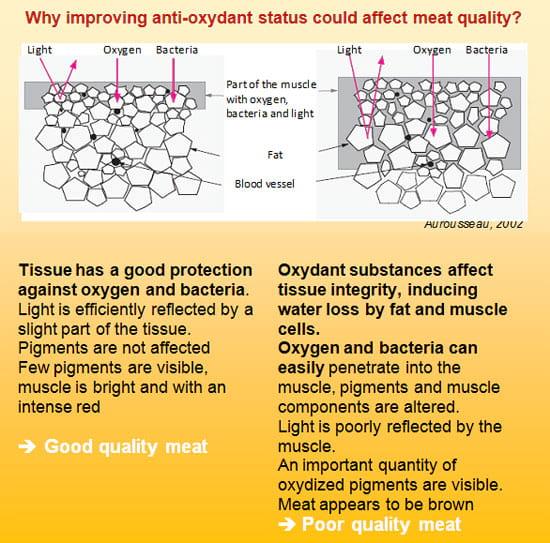

- Increased milk anti-oxidant power
In order to increase selenium concentration in milk, many investigators have shown the importance of the form of the selenium supplement: while increased mineral selenium supplementation can increase cow blood selenium content, it does not increase milk selenium content. Unlike organic selenium, which gives a good dose-response curve (Fig.5).
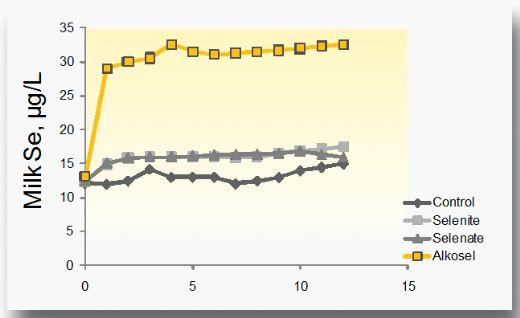
Fig. 5: Effect of the selenium source on cow's milk selenium content (Ortman and Pehrson, 1999).

Fig. 5: Effect of the selenium source on cow's milk selenium content (Ortman and Pehrson, 1999).
Due to its high bioavailability, selenium yeast is a good source of selenium to improve milk selenium: for example, a trial performed in 2005 shows a two-fold increase of selenium in milk with Alkosel as compared to mineral selenium (Fig. 1 b).
On a human health point of view, considering that the estimated average selenium intake is about 30-35 µg/day, while the recommended daily allowance is 55 µg/day in Europe (70 µg/day in the US), increasing milk selenium content from 19 to 30 µg/ litre could provide an extra 6 µg/day, representing about 20% of the current deficit.
CONCLUSION
Selenium supplementation is essential for ruminant to enhance their antioxidant defences, immunity, health and maternal selenium transfer. If selenium yeast was recognised until now for its optimal bioavailability (in 2008, EFSA Scientific panel has recognised that yeast with high levels of organic selenium was up to twice as bioavailable than mineral forms of selenium for human consumption), and its effects on immunity, fertility, performance and health; new data presented today show that selenium yeast can bring additional benefits beyond the farmer, to the food processor and finally the consumer. Selenium yeast supplementation enables to raise animal products selenium content and antioxidant status, addressing consumers health issues, but also to enhance meat quality, a good illustration of the 'farm-to-fork' benefits of a natural feed additive.
Related topics:
Authors:
Lallemand
Lallemand
Recommend
Comment
Share
Recommend
Reply
23 de febrero de 2011
This is a good article about Organic selenium in ruminant diet for the use of selenium for improved performance. I This article provide good information on the role of antioxidant on different organs and functions of body. Increased levels of selenium are worth trying to see the improvement in production and health.
Recommend
Reply

Would you like to discuss another topic? Create a new post to engage with experts in the community.







